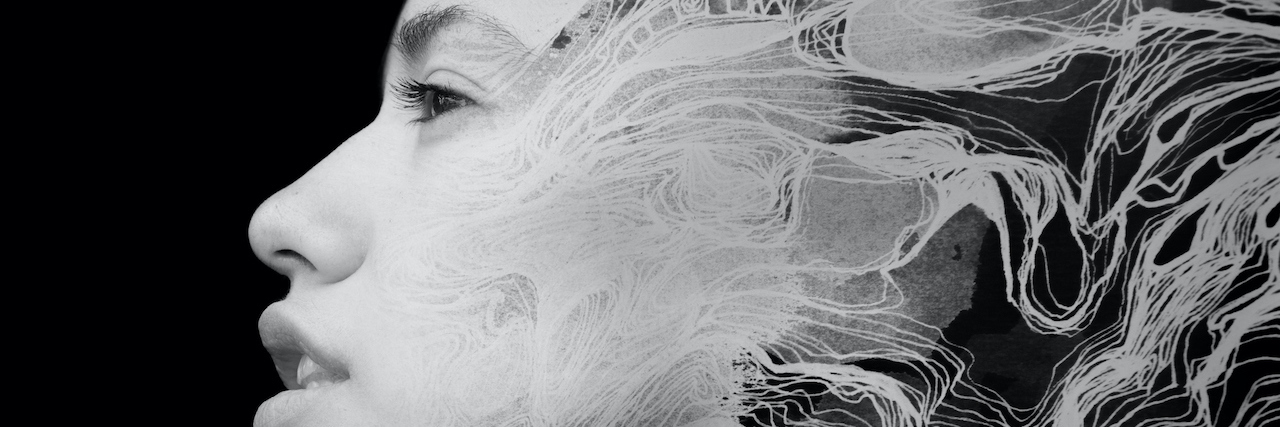Sometimes asking for help is the most skillful thing to do. In dialectical behavior therapy (DBT), we are taught to be skillful; a big focus of DBT is effectiveness. I believe that part of effectiveness is knowing how and when to appropriately ask for help. For me, this means recently choosing to return to therapy and DBT skills classes.
In DBT there is a dialectic that we are both independent and dependent. We can be with others and we can be alone, we can be doing the best we can and need to also try harder or try again. This is the place I find myself now. And this is not easy. Even as I like DBT skills and find them helpful, and even as I know therapy is very helpful and needed, I feel frustrated that I am asking for help again *and* I also know that this is a skillful choice, and a way of being effective: both are true.
On the well-known Borderliner Notes channel, psychiatrist Antonia New discusses this concept in a short, one minute video: “Strategies for Maintaining Recovery.” What she says is brief and also very helpful and valuable for me to understand, and perhaps also for my peers with BPD traits or emotional sensitivity. In the video, she says, “Most of my patients say, in order to be recovered, recognizing a vulnerability to always falling back into patterns, so seeking support at the right moment to go back into treatment.”
This first comment about the “ right moment” is so vital to hear. And also acknowledging that what is the right moment for me, may not be the right moment for you. BPD is a spectrum, and my triggers and challenges and vulnerability factors may not be the same as all my peers. My stressors tend to be interpersonal; criticism and frequent rejection is a major vulnerability factor for me, as is financial stress and a disruption of my routine. I have experienced all of these factors recently, which I find myself ruminating on often.
During the past 18 month with the COVID-19 pandemic I observed myself becoming more vulnerable and falling back into some unhelpful patterns of thinking and behavior. While I have not acted on the most harmful urges, I know that I am more vulnerable to those things as a person with BPD. This means that the skillful thing to do is ask for help and return to treatment and therapy.
I wish it wasn’t the case; I wish I was not “like this” or what I perceive the other people to be like, that I could shrug it off and just “adapt.” But I am not like everyone else. I am me. And I have a history of self-harm and using alcohol to regulate my emotions. Being skillful, maintaining recovery and building back what I feel I am losing is making a healthy decision for who I am, accepting both the strengths and needs that are part of being me.
I also notice the unhelpful all or nothing thought that “everyone else is managing and I am not.” In fact, I don’t *know* everyone. And we all have challenges of various kinds in life. Even if I did know for a fact that others were adapting more easily than myself, their journey is still not my journey. My journey is my own path, and I am committed to living it out as best I can, even when I feel I am encountering the setbacks I face now.
Dr. Antonia New also says, “I have patients who say they need to run everyday for example, to feel emotionally regulated, they cannot disrupt their lives or interrupt their lives in the way others may be able to and feel OK, so a certain amount of self discipline is also helpful, but I don’t think we have a clear answer about how to put people into 100 percent remission, but we can make it a lot better.”
I don’t personally believe in 100 percent remission from BPD, but that also doesn’t mean that life and experiences cannot get much better, that we cannot grow, learn skills and even thrive! I know this because I have experienced it too. I have thrived with these traits, and just because now I am in a season of not thriving, it doesn’t mean this is forever. This is OK. This season is a chance to practice self compassion, engage more intentionally with practicing my self-soothing DBT skills, and, practice “radical acceptance” of this time; it is what it is. It has causes. It is like this right now.
Life feels like I am crawling up a steep hill, but just because I am not at the top, I can still see the sun, and I know there is another side.
If this is you today and you are struggling with whether to seek help, return to treatment or therapy, or see your doctor, know that you are not alone. Asking for help is being skillful, and shows insight and care for yourself. I believe in me during this hard time, and I believe in you too.
Getty image by LUMEZIA

